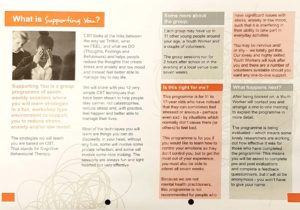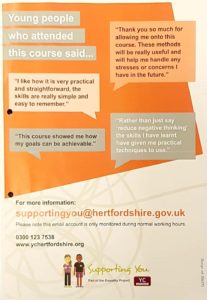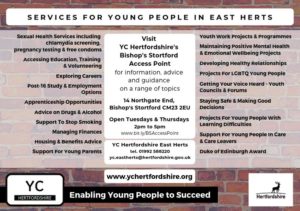Advice for Young People
Some psycho-education ……
What changes occur in adolescence?
Rapid changes can occur physically and emotionally. There are also changes socially (attending secondary school, spending more time with peers) which can present new challenges such as using drugs/alcohol and sexual relationships.
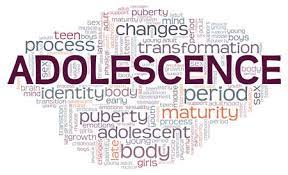 Physical: hormones, timing and changes
Physical: hormones, timing and changes
The process of rapid physical changes in adolescence is called puberty. It starts gradually, from around 11 years for girls and 13 years for boys. The age at which puberty starts has been dropping in most countries, probably owing to better nutrition. So, your children may hit puberty earlier than you did.
The hormone changes responsible actually begin some years earlier and may produce periods of moodiness and restlessness. Girls start these changes before boys and will, for the first 3 or 4 years, appear to be maturing much faster. After this, the boys catch up.
These changes are:
- In girls: menstrual periods, growth of under-arm, body and pubic hair.
- In boys: voice breaks (becomes deeper), growth of body, pubic and facial hair, erections and wet dreams.
- In both: rapid physical growth.
By the age of 17, they will be young men and women who may be bigger than their parents and capable of having children themselves. In spite of this, they often still need support from you.
It is not surprising that, with the speed of these changes, some adolescents become very concerned about their appearance. They may feel worried, especially if these changes happen earlier or later than in their peers. It is important to remember that there is a lot of difference in the ages at which these changes happen, and adolescents need to be reassured about this.
Growth and development use a lot of energy, and this may be why teenagers often seem to need so much sleep. Their getting up late may be irritating, but it may well not be just laziness.
 Psychological and emotional changes
Psychological and emotional changes
As well as growing taller, starting to shave or having periods, people of this age start to think and feel differently. They make close relationships outside the family, with friends of their own age. Relationships within the family also change. Parents become less important in their children’s eyes, as their life outside the family develops.
Real disagreements emerge for the first time as young people develop views of their own that may not be shared by their parents. Adolescents spend a lot of time in each other’s company, or on the telephone or internet chatting to each other. Although this can be irritating to parents, it is an important way of becoming more independent. These friendships are part of learning how to get on with other people and gaining a sense of identity that is distinct from that of the family. Clothes and appearance are a way of expressing solidarity with friends, although teenage children are still more likely to get their values from the family.
Parents often feel rejected, and in a sense they are. But this is often necessary for young people to develop their own identity. Even if you have rows and arguments, your children will usually think a lot of you. The rejections and conflicts are often not to do with your personality, but simply with the fact that you are parents, from whom your children must become independent if they are to have their own life.
As they become more independent, young people want to try out new things, but often recognise that they have little experience to fall back on when things get difficult. This may produce rapid changes in self-confidence and behaviour – feeling very adult one minute, very young and inexperienced the next.
Being upset, feeling ill or lacking confidence can make your adolescent children feel vulnerable. They may show this with sulky behaviour rather than obvious distress. Parents have to be pretty flexible to deal with all this, and may feel under considerable strain themselves.
Adolescence is the time when people start in earnest to learn about the world and to find their place in it. This involves trying out new experiences, some of which may be risky or even dangerous.
- Young people can crave excitement in a way that most adults find difficult to understand – and exciting activities may be dangerous. Fortunately, most people manage to find their excitement in music, sport or other activities that involve a lot of energy but little real physical risk.
- When they do experiment – with drink or drugs or smoking – it is usually with friends. If a young person does this alone, they are in much greater danger. Warnings from older adolescents will usually be taken more seriously than those from parents.
What kind of difficulties can a young person have?
The young person can present with a number of difficulties, some of which are described below.
It is important to note that despite the popular myth of a ‘difficult teenager’, the majority of adolescents do not have significant or severe difficulties.
Emotional problems
- Overeating, excessive sleepiness and a persistent over-concern with appearance may be signs of emotional distress.
- Anxiety may produce phobias and panic attacks. Research suggests that emotional disorders are often not recognised, even by family and friends.
- At some time, four out of ten adolescents have felt so miserable that they have cried and have wanted to get away from everyone and everything. During their adolescence, more than one in five teenagers think so little of themselves that life does not seem worth living. In spite of these powerful feelings, depression may not be obvious to other people.
 Sexual problems
Sexual problems
The dramatic physical changes of adolescence can be very worrying to some teenagers, especially to those who are shy and who don’t like to ask questions. At the other end of the scale, some express their concern with excessive bragging about sexual ability and experiences.
- The age of consent for intercourse, both heterosexual and homosexual, is 16 in England, Scotland and Wales, and 17 in Northern Ireland. It is illegal to have sex if either partner is under this age, even if they give consent.
- More than half of young people in the UK will have had their first experience of sex before the age of 16, and so the risk of pregnancy is an important part of adolescent life. Research suggests that girls who are close to their parents are less likely to become pregnant in their teenage years.
- Those who start having sex early are at greater risk of early pregnancy and health problems. Sexually transmitted diseases are common, and HIV infection and AIDS are becoming ever more common.
- Most adolescents choose their partners quite carefully. Sleeping around and having risky, unprotected intercourse are often signs of underlying emotional problems. They may also be the signs of a risk-taking lifestyle – adolescents who take risks in one way tend to take risks in other ways as well.
- Sensitive support, clear guidance and accurate information about different aspects of sex are essential, for parents, schools, GPs and family planning clinics.
- Crushes on someone of the same gender are common in adolescence, but some young people are going to be gay. Some young people (and their parents) will not be sure whether they are gay or straight.
- Teenagers can get confidential advice on contraception from their GP who does not have to inform their parents. Emergency contraception from pharmacies is only available to those aged 16 or over.
 Behaviour problems
Behaviour problems
Teenagers and their parents complain about each other’s behaviour. Parents often feel they have lost any sort of control or influence over their child. Adolescents want their parents to be clear and consistent about rules and boundaries, but at the same time may resent any restrictions on their growing freedom and ability to decide for themselves.
If disagreements are common and normal, when should you worry? Experience suggests that children are at a greater risk of getting into trouble if their parents don’t know where they are. So, try to make sure that you know where they are going and what they are up to. If you really don’t know, you need to find out.
 School problems
School problems
This can be because of:
- Difficulties in separating from parents.
- Being a perfectionist, and becoming depressed because they can’t do as well as they would want to.
- Disturbed family life, with early separation from or death of a parent.
- An established pattern may have started at primary school; these children often have physical symptoms, such as a headache or stomachache.
Those who go to school, but then play truant, are usually unhappy at home and frustrated at school. They prefer to spend their days with others who feel the same way.
Emotional problems will often affect schoolwork – worrying about yourself or about what is going on at home makes it difficult to concentrate. Pressure to do well and to pass exams may come from parents or teachers, but adolescents usually want to do well and will push themselves. Excessive nagging can be counterproductive. Exams are important, but they should not be allowed to dominate life or to cause unhappiness.
Bullying can cause problems at school. Around 1 in 10 secondary school children are bullied at some point; about 1 in 20 are bullied every week. If you are worried that this is happening, talk to the school to make sure that they enforce their anti-bullying policy.
 Trouble with the law
Trouble with the law
- Most young people do not break the law. When they do, it usually only happens once.
- If a parent doesn’t feel that breaking the law is particularly important, it is more likely that their children will offend.
- Unhappiness or distress can also lead to behaviour that will get adolescents into trouble with the police. It is always worth asking about their feelings if an adolescent is repeatedly getting into trouble.
 Eating problems
Eating problems
Weight can be a real problem. If an adolescent is overweight and is criticised or made fun of, they are more likely to dislike themselves and to become depressed. This can lead to inactivity and comfort eating, which worsens the weight problem – dieting can actually aggravate the situation. It is more important to ensure that the young person feels happy with themself, fat or thin.
Many adolescents diet. Fortunately, few will develop serious eating disorders; only around 1 in 100 teenagers develop anorexia, and 1 in 50 have bulimia. However, eating disorders are more likely to occur in those who take up serious dieting, think very little of themselves, are under stress and who have been overweight as children.
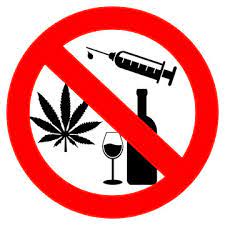 Drugs, solvents and alcohol
Drugs, solvents and alcohol
- Many teenagers experiment with alcohol and illegal drugs. Around one in three 15-year-olds in England have used drugs at some time.
- Regular use of drugs or alcohol is much less common. Less than 1 in 100 of 11- to 12-year-olds regularly use drugs, but this increases to 1 in 6 of 15-year-olds.
- Although cannabis has been widely felt to be relatively harmless, there is now good evidence that it can make mental health problems worse in adolescence, and can double the risk of developing schizophrenia. Despite publicity about other drugs, alcohol is the most common drug to cause problems for adolescents.
- You should consider the possibility of drug or alcohol misuse when you notice sudden or dramatic changes in behaviour.
- Find out about any drugs your children may be using – see further help and information at the end of this leaflet.
What if they ask about the drugs you used to use in your younger days?
Honesty is generally the best policy, although it is probably worth stressing the differences in drugs available now. For example, much of the cannabis available today is much stronger than what was available 20 years ago, and we now know a lot more about its risks to both physical and mental health.
Abuse
- Physical, emotional and sexual abuse may occur in adolescence and may cause many of the problems mentioned earlier. Children or teenagers who are being abused can find someone to talk to at ChildLine.
- Families with these problems need expert advice and should seek help. The list of organisations under further help and information at the end of this leaflet may point you in the right direction.
 Mental illness
Mental illness
Much less often, changes in behaviour and mood can mark the beginning of more serious psychiatric disorders. Although uncommon, bipolar disorder (manic depression) and schizophrenia may emerge for the first time during adolescence.
Extreme withdrawal may indicate schizophrenia, although there are usually other explanations for such behaviour. Parents who are concerned about these possibilities should ask to see their GP.
- Don’t Rush To Grow Up. …
- Don’t Try To Plan Your Entire Life Out. …
- Friends Will Come And Go. …
- Cool Is Just A Matter Of Opinion. …
- Saying No Is Fine. …
- You’re Not The Only One Who’s Anxious. …
- Seek Help When Things Get Too Much. …
- Stay Open-Minded To The Views And Opinions Of Others.
1. If you always compare yourself to others, you will never find out who you are.
When you look at others to measure your worth, you are dismissing your unique talents, physical features, and voice. Instead, spend your energy discovering all your gifts, building on your strengths, and fine-tuning those weaknesses. Honour who you were created to be, and spend your life celebrating your individual traits and unique sense of purpose. Be the best you, as that’s enough.
2. Pick your people wisely.
Who you surround yourself with will always be your greatest influence. Choose your friends carefully. They will have a deep impact on how you do life. Make sure they are trustworthy, supportive, and kind. It’s okay to let unhealthy relationships go, and it’s also okay to avoid people you know aren’t healthy for your well-being. You can still be friendly and set firm boundaries with people, but you have a right to make your own decisions about friends, so don’t feel obligated to succumb to peer pressure.
3. Always make time for self-care.
It’s so easy to forget that we need to take time for our personal needs. Self-care looks different to everyone, so as you get to know yourself better, tune into what you need to be healthy, both physically and emotionally. Don’t deny yourself this significant indulgence. If you don’t replenish your mental and physical well-being, the consequences can be dire. Find ways to rest and refuel both your body and mind. Then practice them regularly.
4. You have more courage than you know.
You will never know how brave you are until you take that first step into your fear. The greatest lie you will tell yourself is that you “can’t.” The first step is always the hardest. The ones that follow often lead to fulfilment and empowerment no matter what actually transpires. Just doing that hard thing will strengthen you and help you realize you have more courage than you know.
5. You will make mistakes, let people down, and fail miserably.
You should expect your life to have some serious lows, massive disappointments, and humiliating shame. You are not immune to making mistakes. You will never be perfect, so prepare yourself for these falls and understand that it’s what you do with these low points that matter. Give yourself an abundance of grace when you mess up because although guilt and shame can be a useful moral barometer, they can also sabotage your peace. Take responsibility for your actions and do everything you can to resolve and redeem the situation. Remember that some of the greatest life lessons come from the hardest falls. Sometimes growing hurts.
6. Be careful how you measure success.
We live in a world of mass media that often defines success by beauty, wealth, and fame. Please don’t believe these metrics. Your success is solely based on your happiness, fulfilment, and peace. Don’t accept any other definition this world gives because it will only lead you down empty roads with a malnourished heart. What brings you deep joy? What fuels your passion and fulfils your purpose? What brings meaning to your life and challenges you to grow? Pursue a life that answers those questions, and you will find true success.
There are so many more things I want my teen to know, but if nothing else, I hope she carries these messages with her. If she can truly understand these things and practice them every day, I’ll call that a parenting win.
Activities for Students Whilst School is Out
Please Click on Link Above:
Click on Image To Enlarge
Click on Image To Enlarge




